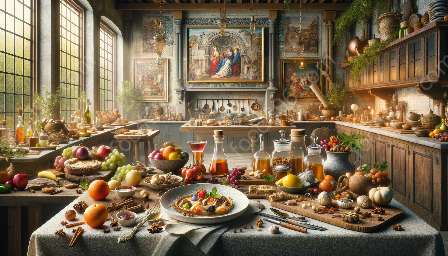The Renaissance period was a time of great cultural and culinary innovation, and its cuisine played a significant role in shaping the future of gastronomy.
Understanding Renaissance Cuisine
Renaissance cuisine refers to the food and culinary traditions of the Renaissance era, which spanned from the 14th to the 17th century in Europe. This period marked a revival of interest in the arts, science, and learning, leading to significant advancements in various aspects of human life, including the culinary arts.
One of the defining features of Renaissance cuisine was its emphasis on flavors, presentation, and the use of local, seasonal ingredients. It was a time of exploration and discovery, with new ingredients such as exotic spices and fruits being introduced to European kitchens, expanding the culinary landscape.
Historical Context
The Renaissance period emerged as a transitional phase between the medieval and modern eras, and this transition was reflected in the evolution of food culture. Trade and exploration brought a wealth of new ingredients to Europe, resulting in a fusion of culinary traditions from different parts of the world.
Renaissance cuisine was influenced by the patronage of wealthy and powerful families, leading to extravagant feasts and banquets that showcased the culinary skills of talented chefs. Food was not only a means of sustenance but also a form of artistic expression and social symbolism.
Culinary Innovations
The Renaissance witnessed the publication of numerous cookbooks and culinary treatises, which documented the recipes, techniques, and dining customs of the time. These publications played a crucial role in codifying culinary practices and preserving traditional recipes that have continued to influence modern cuisine.
The rise of culinary guilds and professional kitchens further contributed to the standardization and refinement of cooking methods, leading to the establishment of culinary traditions that have endured through the centuries.
Influence on Evolution of Cuisine
Renaissance cuisine laid the foundation for many culinary practices and traditions that are still prevalent today. The emphasis on the art of food presentation, the use of fresh and seasonal ingredients, and the exploration of flavor combinations have all left an indelible mark on the evolution of gastronomy.
Furthermore, the cultural exchange and cross-pollination of culinary techniques during the Renaissance era have contributed to the diversity and richness of modern cuisine. The fusion of different culinary traditions has led to the creation of new and innovative dishes that continue to delight palates around the world.

